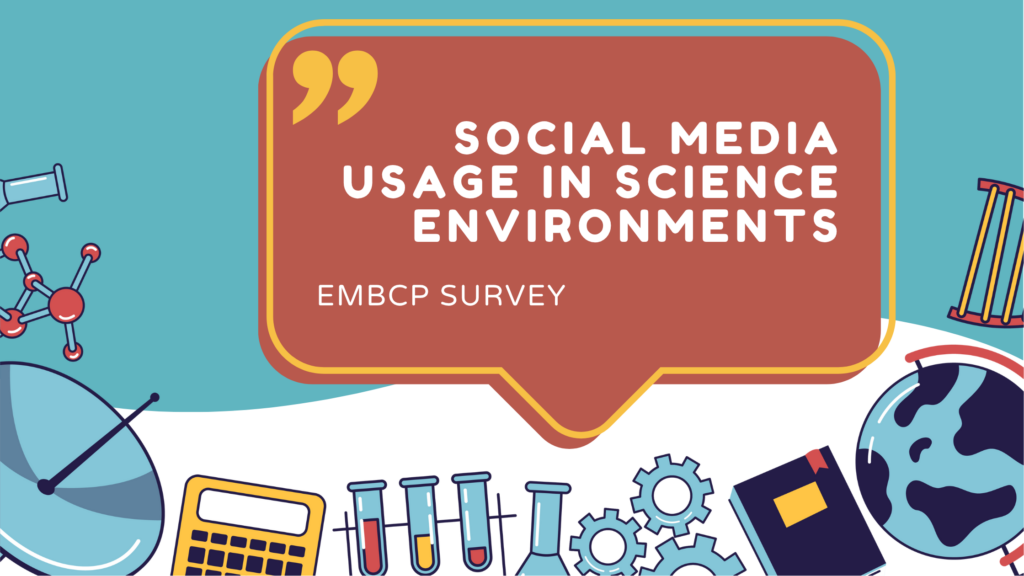
Your Experience Matters: Join the EMBCP Survey on Social Media and Science!
Dear colleagues,
Social media has become one of today’s most influential channels for sharing scientific knowledge and raising awareness about the ocean and the environment. To better understand how these platforms are used across the scientific community, the European Marine Board Communication Panel (EMBCP), is leading the Survey on Social Media Usage in Science Environments.
We warmly invite you to take part in this international survey, which seeks to gather perspectives from researchers, science communicators, policy-makers, journalists, educators, industry representatives, and NGOs. Your contribution will help map how social media is used in marine and environmental sciences, both individually and institutionally, and will support communication teams in identifying the most effective strategies to reach their audiences.
Why your participation matters?
Your experience and opinions are essential for understanding the role of social media in making science more visible, accessible, and impactful. The greater the diversity of responses, the stronger and more representative the results will be.
How to take part?
- The survey is anonymous.
- It takes around 10–15 minutes to complete.
- It is available in ten languages.
- Responses are open until 31 December 2025.
Please take a moment to complete the survey here.
After data analysis, the main findings will be shared on the European Marine Board website.
Thank you in advance for your valuable contribution!
——
A sua experiência é importante: participe no inquérito do EMBCP sobre redes sociais e ciência!
Caros colegas,
As redes sociais tornaram-se um dos canais mais influentes da atualidade para partilhar conhecimento científico e sensibilizar para as questões relacionadas com o oceano e o ambiente. Para compreender melhor como estas plataformas são utilizadas pela comunidade científica, o Painel de Comunicação do Conselho Europeu para as Ciências Marinhas (EMBCP) está a realizar um inquérito sobre a utilização das redes sociais em contextos científicos.
Convidamo-lo a participar neste estudo internacional, que procura reunir as perspectivas de investigadores, comunicadores de ciência, formuladores de políticas, jornalistas, educadores, representantes da indústria e ONGs. A sua contribuição ajudará a mapear como as redes sociais são utilizadas nas ciências marinhas e ambientais, tanto individualmente quanto institucionalmente, e apoiará as equipas de comunicação na identificação das estratégias mais eficazes para alcançar seus públicos.
Por que a sua participação é importante?
A sua experiência e opiniões são essenciais para compreender o papel das redes sociais em tornar a ciência mais visível, acessível e impactante. Quanto maior for a diversidade das respostas, mais fortes e representativos serão os resultados.
Como participar?
O inquérito é anónimo.
Demora cerca de 10 a 15 minutos a preencher.
Está disponível em dez idiomas.
As respostas estão abertas até 31 de dezembro de 2025.
Por favor, dedique um momento para preencher o inquérito aqui.
Após a análise dos dados, as principais conclusões serão partilhadas no site do European Marine Board.
Agradecemos antecipadamente a sua valiosa contribuição!